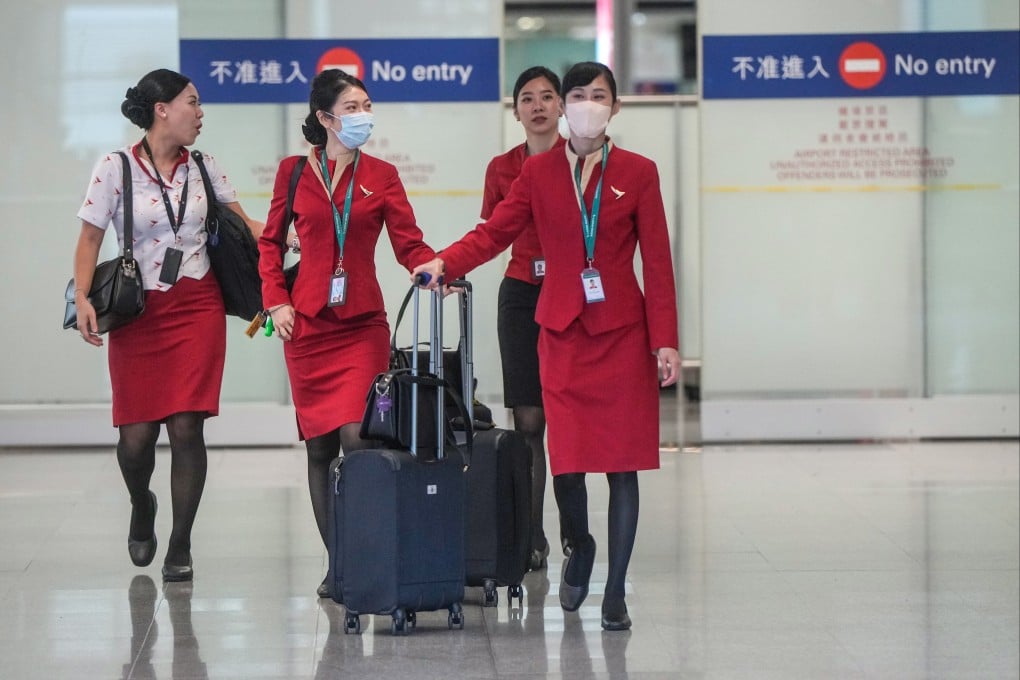New cabin crew at Hong Kong’s Cathay Pacific can earn up to HK$20,000 a month after pay increase, dependent on number of flying hours
- Flag carrier says it will continue listening to cabin crew and review pay to ensure it stays ‘market competitive’
- Embattled airline has been in spotlight over employee morale, financial trouble and recent discrimination scandal

The company on Monday announced local cabin crew could increase their take-home salary from July after a rise in productivity pay – part of their earnings alongside basic wage and layover allowance.
The rate of increase would depend on the number of flying hours accumulated in a month. The basic monthly salary for Cathay’s junior cabin crew members is now at HK$9,100, only a third of the level before the pandemic hit.
“This will enable us to continue to reward and retain our valued people, attract new talent, and provide a fulfilling career path for our people as we continue to rebuild Cathay and the Hong Kong international aviation hub,” said Vincent Yu, the airline’s general manager of in-flight service delivery.
He said the carrier would continue to listen to cabin crew and review their pay to ensure it stayed “market competitive”.